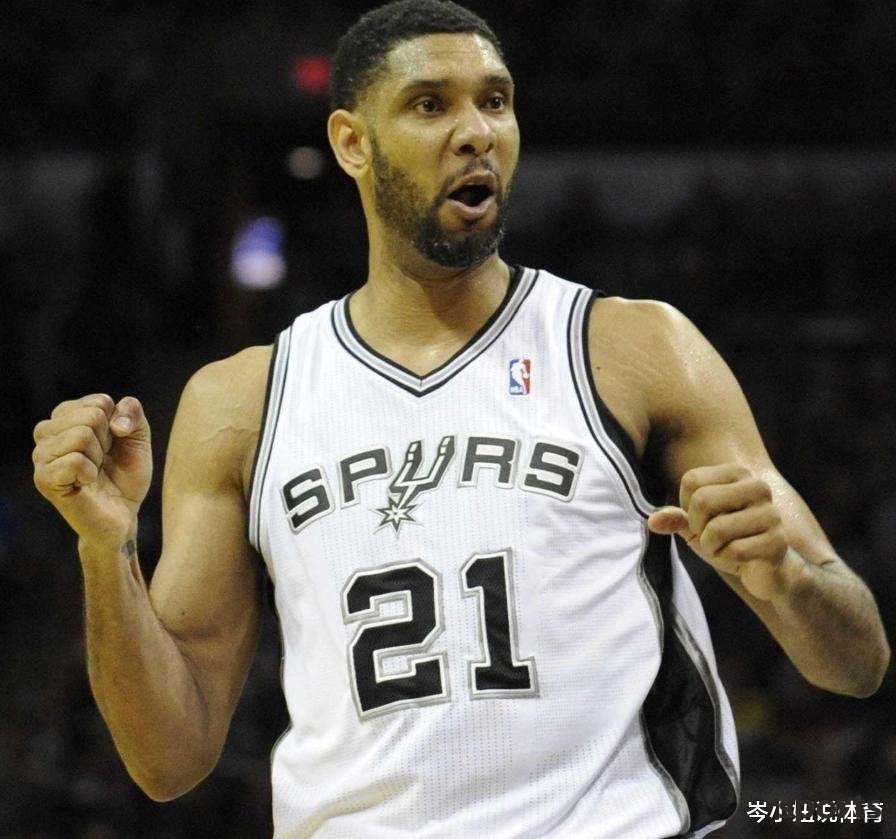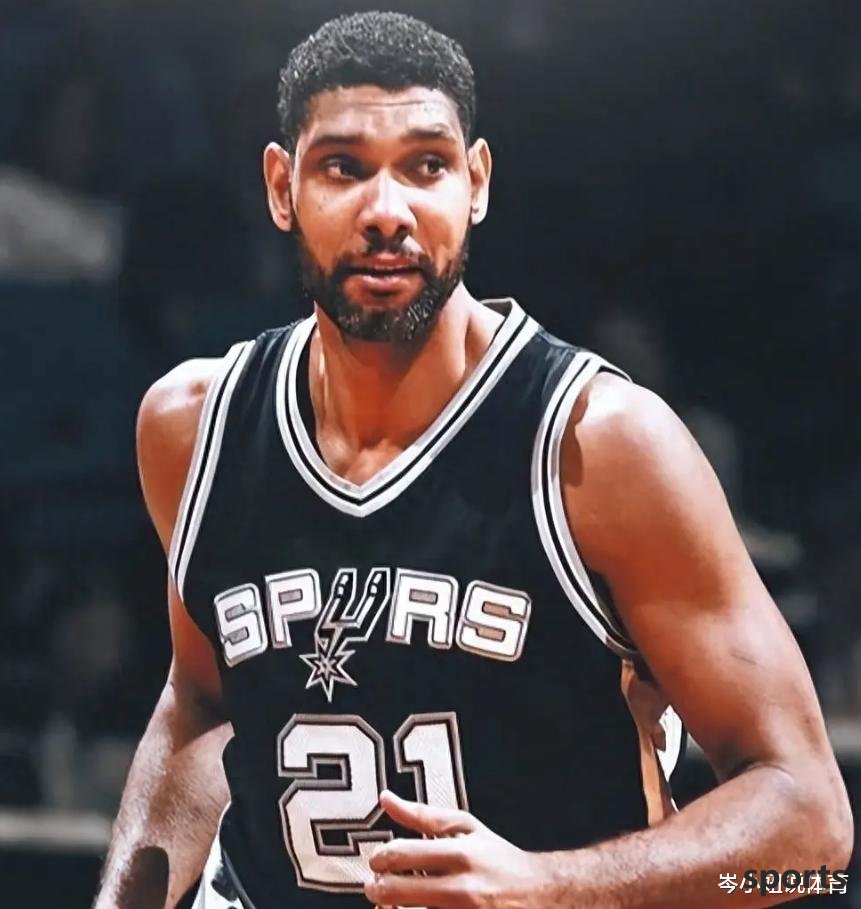AA-Sport > Basketball > Historical level of defense, but Duncan has no best defensive player in his career, which is ridiculous
Historical level of defense, but Duncan has no best defensive player in his career, which is ridiculous
On June 27, in the NBA's history scroll, the art of defense is often overshadowed by gorgeous scoring performances, but real basketball connoisseurs know that the creation of a championship trophy must stand on the iron-like defense foundation. When we turn our attention to the glorious dynasty of the San Antonio Spurs spanning twenty years, Tim Duncan, the silent defensive monument, has become the most interesting paradox in the league's awards mechanism with 15 selected to be the best defensive team (first in history) but never scored the best defensive player (DPOY) 15 times.

**Defensive wisdom that data cannot be measured**
Turn on Duncan's defensive resume, those cold data can no longer bear their true value. The basic defensive data of 2.2 blocks and 0.7 steals per game in his career are far less eye-catching than Ben Wallace (4 times won in 2002-06) or Deakinbe Mutombo's finger-shaking performance in the DPOY selection. But the defensive philosophy under the Spurs system is precisely: every defensive choice of Duncan reconstructs the opponent's offensive logic. In the classic case of the 2004-05 season, he let his opponent's shooting percentage in the penalty area plummet to 43.2%, which is even lower than the league's average shooting percentage outside the three-point line that year (35.6%). This invisible deterrence formed through prediction and space compression is a perfect interpretation of modern basketball's "Defensive Impact" theory.

**The defensive code of the Spurs system**
Greg Popovich created a defensive system like a precision gear set, and Duncan is the most critical transmission shaft. In an era when joint defense was not yet legal, Duncan's original "pseudo-joint defense" tactic - creating more local defense less by delaying return to position, became the ultimate weapon for the Spurs to deal with pick-and-roll. In the 2007 playoff series against the Suns, he let Stoudemire score per game drop from 20.4 points in the regular season to 14.8 points. This systematic limitation on the super inside is far beyond the block data. What is even more amazing is that from the shrinking season in 1999 to the revenge of the Heat in 2014, the Spurs' defensive efficiency led by Duncan has always ranked among the top five in the league. This adaptability that spans three eras has completely subverted the inherent perception of "defense depends on physical fitness". The visual bias of the award mechanism**
**The "eye effect" in the DPOY selection is particularly exposed to Duncan. Comparing the award-winning Mutombo (13.5 rebounds per game + 2.7 blocks per game) and Duncan (12.2 rebounds per game + 2.3 blocks per game), the former's exaggerated defensive celebration moves and iconic finger shaking are in sharp contrast to the latter's silent retreat. The NBA official documentary "The Timeline" once disclosed that in the 2007 DPOY selection, Duncan ranked first in the coach voting process, but was dragged down by the media votes to third. This separation between professional perspective and mass communication has led to the value of "silent and silent" in the defensive system being continuously underestimated.
**The cross-eracial defensive benchmark**
When modern basketball entered the era of data revolution, Duncan's defensive value was actually renamed in retrospective research. ESPN's defensive real positive and negative value (DRPM) statistics show that Duncan led the league for five consecutive years in the peak period of 2002-06. This high-level data covering complex variables such as defensive counterattack and teamwork has finally made it clear. What is more interesting is that in 2014, 38-year-old Duncan averaged only 14 points per game in the finals, and used textbook-like vertical jump defense to crack the Heat's small ball system. At this time, six years have passed since he was last selected as the best defense team, but he can still complete the defensive teaching of basketball in the new era.
In this league that pursues visual stimulation, Duncan's defensive aesthetics requires professional ears to appreciate like classical music. The record of the 15 best defensive lineup may always be dusty, but those offensive choices that have been strangled in the bud, the reshaped opponent's shooting distribution, and the defensive culture inherited in the Spurs locker room are the most noble praises to this "imperfect perfect defender". When blocking machines like Rudy Gobert can win both DPOYs, history will eventually prove that some greatness does not require trophies to endorse.
Trò chơi trực tuyến miễn phíRelated Posts
Pelicans official announcement! Looney has sprained his left knee ligament and will be sidelined for at least 2-3 weeks. The old player once said that the Pelicans were cursed.
BasketballOn October 16, the Pelicans suffered another injury. The team's new aid Looney was determined to be injured for at least 2-3 weeks. The New Orleans Pelicans officially announced that Kevin Looney was diagnosed with a sprain of the proximal tibio...
moreIf Shepard is traded after 20 games, Udoka will definitely choose between Whitehead and Holiday.
BasketballThe Rockets are basically certain that Shepard will enter the starting lineup and may give him 20 games. If that doesn't work, the Rockets will make a decisive trade. Udoka should prefer White or Jrue Holiday. White and Jrue Holiday won a champi...
moreEzeli: Curry’s leadership attracted players to join KD& & Wiggins all left with championships
BasketballOctober 15th Recently, former NBA player Ezeli talked about his former teammate Curry on the "DubsTalk" program. Ezeli said: "Warriors fans, please cherish this time. They have won for 13 years. This kind of thing rarely happens...I h...
more
Hot Posts
- Warriors: Petition Seth Curry to become the number one jersey sales in the season
- Congratulations to the Lakers! The forward line is traded, and it would be perfect to trade Reeves for Avdia
- The curtain of the NBA in the new season is about to kick off, and the heroes compete for the destiny
- Lakers General Manager Robert Pelinka was interviewed and responded positively to various speculations surrounding LeBron James recently
- US media commented on the strongest player every year in the 21st century: James dominated in 8 years, O Pang Kobe Jokic dominated in three consecutive games
- Only 505 points away, this 51-year NBA record will be broken by Westbrook in the new season
- The Lakers are really ungrateful! If James hadn t joined, the Lakers Dynasty would have collapsed long ago
- HG08 2025 NBA Finals: 4 Things to Watch in Game 6 of the Finals
- Young Hero! Jaylenway scored 40+ in the finals in the first three years of his career. In 2006, Wade s first player
- G1 in the Eastern Conference Finals made a shocking comeback! Brunson scored 40+, but he said this when interviewing him after the game!
Recent Posts
-
The Bucks officially announced signing contract with Clippers former player Kofi last season s three-pointers and over 40% of the Heat signed Jamil Young
-
The NBA has a history of nearly 80 years, and only 5 people can attack without differences between left and right hands, and it is difficult for Durant to achieve it.
-
Century Hat + Deadly Three-pointer, Facing Curry s Draw, Irving joins hands with James to overturn the Warriors 73
-
Does Harden still have a chance to win the NBA championship?
-
How much did North American celebrities pay to get the "Bald Mamba" Caruso?
-
Worst loss in the playoffs in the past decade: 16 Thunder Warriors & 18 Rockets are on the list this season
-
4th plus or minus value + 5th steal! 81 million Caruso interprets the value of 3D ace
-
US media urges Lakers to acquire Jaren Jackson Jr. and the Grizzlies begin to rebuild quickly
-
A case of blank check! The old Clippers general was formally arrested and not allowed to be released on bail. He was imprisoned for up to 10 years in suspicion of fraud.
-
Withdrawal of the main force and gave up the game, the substitute turned defeat into victory! Harden and Paul were stunned